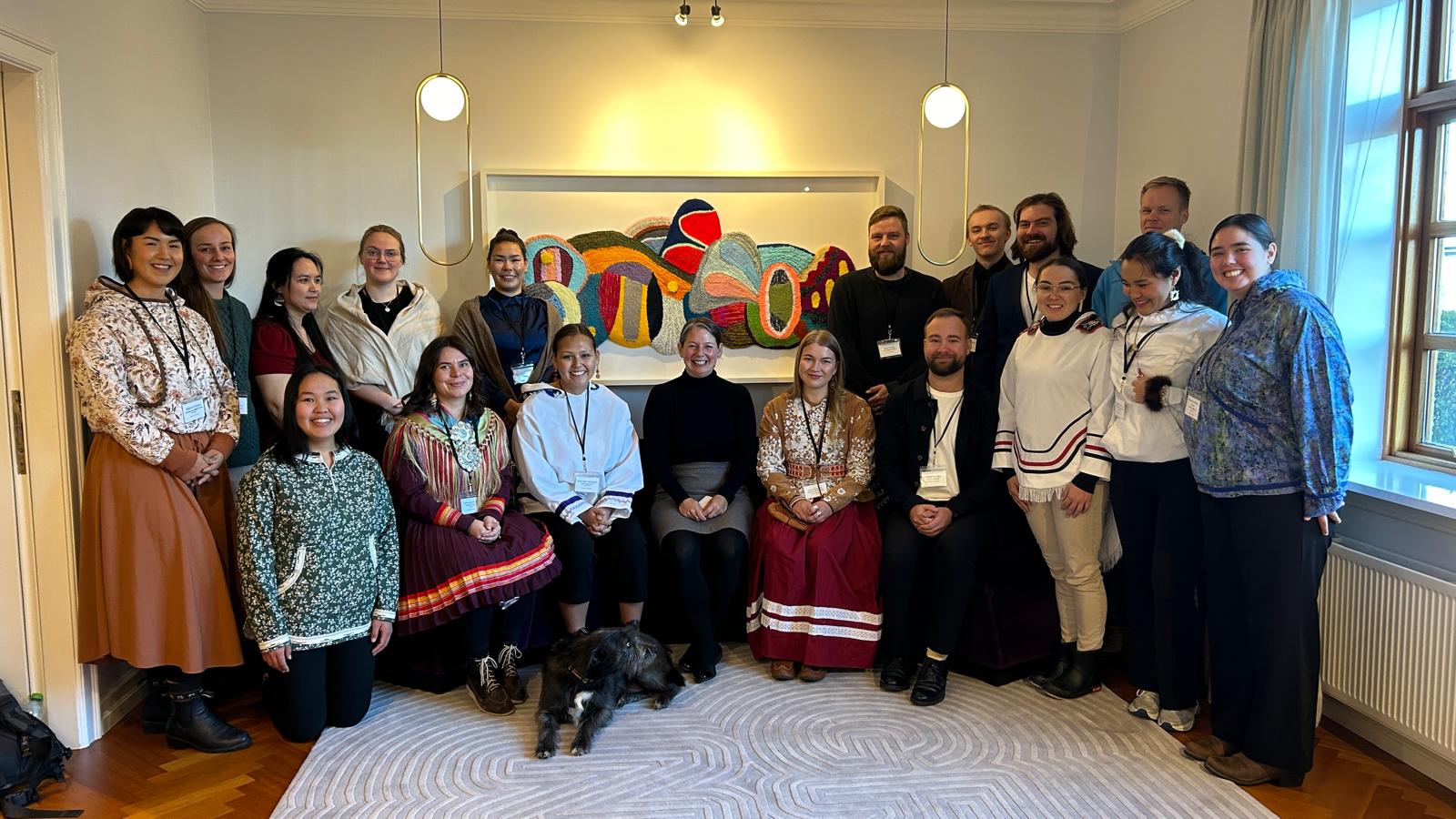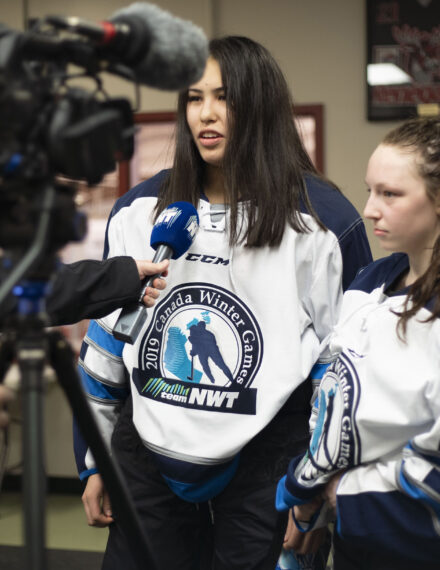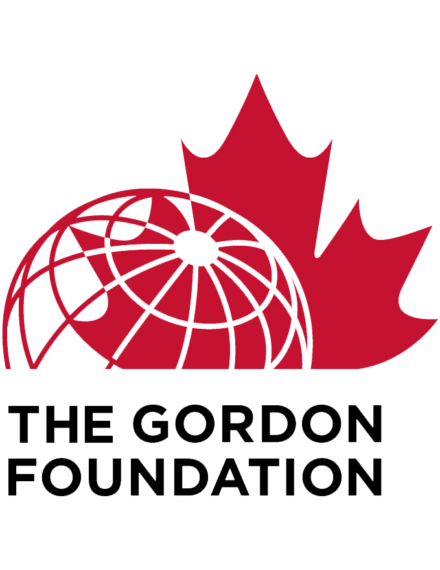
The principle of “nothing about us, without us” should guide Arctic tourism practices, ensuring that Indigenous voices and local communities are accurately represented in policy-making.
That is the message from 16 young Arctic leaders who came together in Reykjavik, Iceland for the third Arctic Policy Hackathon. Policy Hackathons see emerging leaders discuss a specific policy issue and create tangible solutions using their lived experience.
Converging from Arctic Indigenous and local communities across Alaska, Canada, Greenland, Sapmi, Norway, Sweden, and Finland to share their experiences and perspectives, the participants included Andrea Andersen of Iqaluit, Jake Olson of Yellowknife, Melynda Ehaloak of Cambridge Bay, and Samantha Saksagiak of Nain.
Over three intense days, the new leaders worked together to craft policy recommendations setting out a sustainable future for Arctic Tourism.
From mandating the prioritization of Arctic Indigenous guides in hiring processes to pan-Arctic environmental standards, their practical solutions for ensuring tourism benefits the Arctic and its inhabitants are grouped under four key themes – Indigenous Peoples, Environmental Stewardship, Community, and Infrastructure.
In addition to building their policy skills, participants expanded their networks, increasing pan-Arctic collaboration now and in the future.
Having published their policies, the young leaders set about getting them into the hands of political leaders and policymakers at the prestigious Arctic Circle Assembly, which began the very next day.
Melynda Ehaloak was part of a panel at the Assembly where the policy recommendations were shared for the first time, before the emerging leaders met with many decision-makers at the international gathering.
From Canada’s Senior Arctic Official and Director General Arctic, Eurasian and European Affairs, Robert Sinclair to Nunavut Premier PJ Akeeagok and the EU’s Special Envoy for Arctic Matters Claude Véron-Réville, the young leaders struck up many conversations about ensuring tourism benefits their communities. Before the event began, they also got to sit down with Jenny Hill, Canada’s Ambassador to Iceland to share their perspectives on the realities of living in the Arctic and tourism.
The Hackathon just the start, with enthused Hackathon participants now ready to share their policy recommendations with their own communities, leaders, and decision-makers.
Organized by the Gordon Foundation and the Arctic Mayors’ Forum and with funding from Global Affairs Canada, the 2024 Arctic Policy Hackathon took place from 14-16th October.
Quotes
“It was an inspiring few days. There was enthusiasm, ideas, and determination in the room – and you can see the results of that in the policy recommendations.”
“It was pleasing to see how positive and engaged political and policy leaders were. Sustainable tourism is a vital pan-Arctic issue and these leaders realize how important the voices of engaged young people with lived experience are.”
Selma Ford, Program Director, the Gordon Foundation.
“For us, the Arctic is more than a tourist destination, it is our home. We live, create, exist, and thrive here, making it vital to acknowledge the injustices in Arctic tourism development, including unequal power dynamics, lack of understanding of Arctic Indigenous Peoples and their rights, and the legacies of colonization.”
Arctic Policy Hackathon participants
Pictures are available here.
For more information and interview opportunities, please contact: Gordon Shallard-Brown, Communications Manager, The Gordon Foundation | gshallard@gordonfn.org | 416.601.4776 x 230
Background Information
The Arctic Policy Hackathon took place from the 14th to the 16th October 2024, in Reykjavík, Iceland. It was organized in partnership by The Gordon Foundation and the Arctic Mayors’ Forum.
The Gordon Foundation’s innovative Policy Hackathon model brings emerging leaders together to discuss a specific policy issue and create tangible solutions informed by their lived experience. The Foundation has run three Northern Policy Hackathons and three Arctic Policy Hackathons, bringing together new leaders from across Canada’s North and the circumpolar North respectively.
Outcomes of the Hackathon include:
- Participants build policy skills
- Participants expand their networks, leading to increased pan-Arctic collaboration
- Participants gain a new model for policy development that can be taken back to their communities and organizations
- Pan-Arctic recommendations are developed and presented to key stakeholders.
The 16 Arctic Policy Hackathon participants were:
- Aina Elise Fagereng (Bodø, Norway)
- Andrea Andersen (Iqaluit, Nunavut, Canada)
- Emma Krupula (Sevettijärvi, Finland / Sapmi)
- Frances JakyLou Olemaun (Utqiagvik, Alaska, United States)
- Heleen Middel (Tromsø, Norway)
- Jake Olson (Yellowknife, NWT, Canada)
- Káren-Ann Hurri (Gárásavvon, Sápmi)
- Maiyuraq Lauryn Nanouk Jones (Unalakleet, Alaska, USA)
- Melynda Ehaloak (Cambridge Bay, Nunavut, Canada)
- Miyuki Daorana (Qaanaaq and Nuuk, Greenland)
- Navarana Bidstrup (Greenland)
- Pietari Meriläinen (Oulu, Finland)
- Pontus Frank (Luleå, Sweden)
- Samantha Saksagiak (Nain, Nunatsiavut, Canada)
- Timo Tuuha (Salla, Lapland, Finland)
- Vetle Bo Saga (Tromsø, Norway)
The Gordon Foundation is a charitable organization dedicated to protecting Canada’s water and empowering Canada’s North.
The Arctic Mayors’ Forum aims to give local governments a voice in the development of the Arctic.

